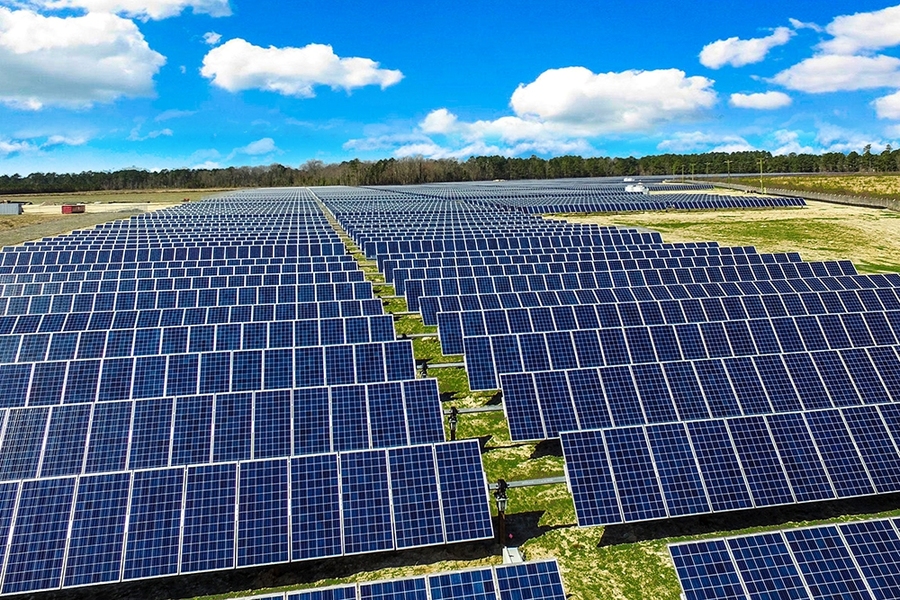

Empowering Homes: Lowered Utility Bills with Solar Panel Solutions
In the quest for energy efficiency, lowered utility bills through solar panel installations have become a beacon for homeowners seeking both financial savings and environmental sustainability. This article explores the transformative impact of solar panel systems on utility costs, shedding light on the various aspects that contribute to lowered utility bills.
Harnessing Solar Power for Utility Savings
At the core of lowered utility bills is the harnessing of solar power. Solar panels, equipped with photovoltaic cells, capture sunlight and convert it into clean electricity. By relying on solar energy, homeowners can significantly reduce their dependence on traditional utility sources, translating into lower electricity bills and long-term savings.
Financial Benefits and Return on Investment
Investing in solar panels is a strategic move for homeowners looking to lower utility bills. While the initial costs may seem significant, the financial benefits and return on investment are substantial. As solar technology advances and becomes more cost-effective, homeowners can experience a noticeable reduction in their utility expenses over time.
Net Metering: Offsetting Costs with Excess Energy
One key mechanism contributing to lowered utility bills is net metering. This system allows homeowners to feed excess energy generated by their solar panels back into the grid. In return, they receive credits on their utility bills. Net metering not only offsets costs but also encourages a more dynamic and sustainable energy grid.
Energy Efficiency and Reduced Consumption
Solar panel systems often come hand-in-hand with increased energy efficiency. Homeowners can opt for energy-efficient appliances and lighting, reducing overall energy consumption. By combining solar energy production with efficiency measures, utility bills can be further lowered, creating a holistic approach to sustainable and cost-effective living.
Government Incentives and Rebates
Lowering utility bills with solar panels is made even more attractive through government incentives and rebates. Many regions offer financial incentives to encourage the adoption of renewable energy. These can include tax credits, rebates, and other programs that significantly alleviate the upfront costs of installing solar panels, making them more accessible to a broader range of homeowners.
Smart Energy Management for Optimal Savings
Smart energy management systems play a crucial role in maximizing utility savings. Homeowners can monitor and control their energy usage in real-time, making informed decisions to optimize efficiency. Smart systems can adjust energy consumption patterns, ensuring that the solar panel-generated electricity is used most effectively.
Energy Storage Solutions for Consistent Savings
Energy storage solutions, such as advanced batteries, contribute to consistent savings on utility bills. These systems store excess energy generated during peak sunlight hours for later use. During periods of low sunlight or at night, homeowners can rely on stored energy, reducing the need to draw electricity from the grid and further lowering utility costs.
Environmental Impact of Lowered Utility Bills
The positive impact on the environment is a consequential benefit of lowered utility bills through solar panels. By reducing reliance on non-renewable energy sources, homeowners actively contribute to the fight against climate change. Lowered utility bills become not only a financial win but also a tangible way to participate in environmental conservation.
Educating Homeowners for Informed Choices
Empowering homeowners with knowledge is pivotal in encouraging the adoption of solar panels for lowered utility bills. Education initiatives and outreach programs play a crucial role in informing individuals about the financial, environmental, and technological aspects of solar energy. Informed homeowners are more likely to make sustainable choices that benefit both their wallets and the planet.
Conclusion: Lowered Utility Bills and Sustainable Living
In conclusion, lowered utility bills through solar panel installations represent a significant step toward sustainable and cost-effective living. From harnessing solar power to government incentives, smart energy management, and environmental impact, the benefits are multifaceted. As more homeowners embrace solar solutions, the collective impact on lowered utility bills and a greener future becomes increasingly profound.
For more information on lowered utility solar panel homes, visit Lowered utility solar panel home.





.jpg)


